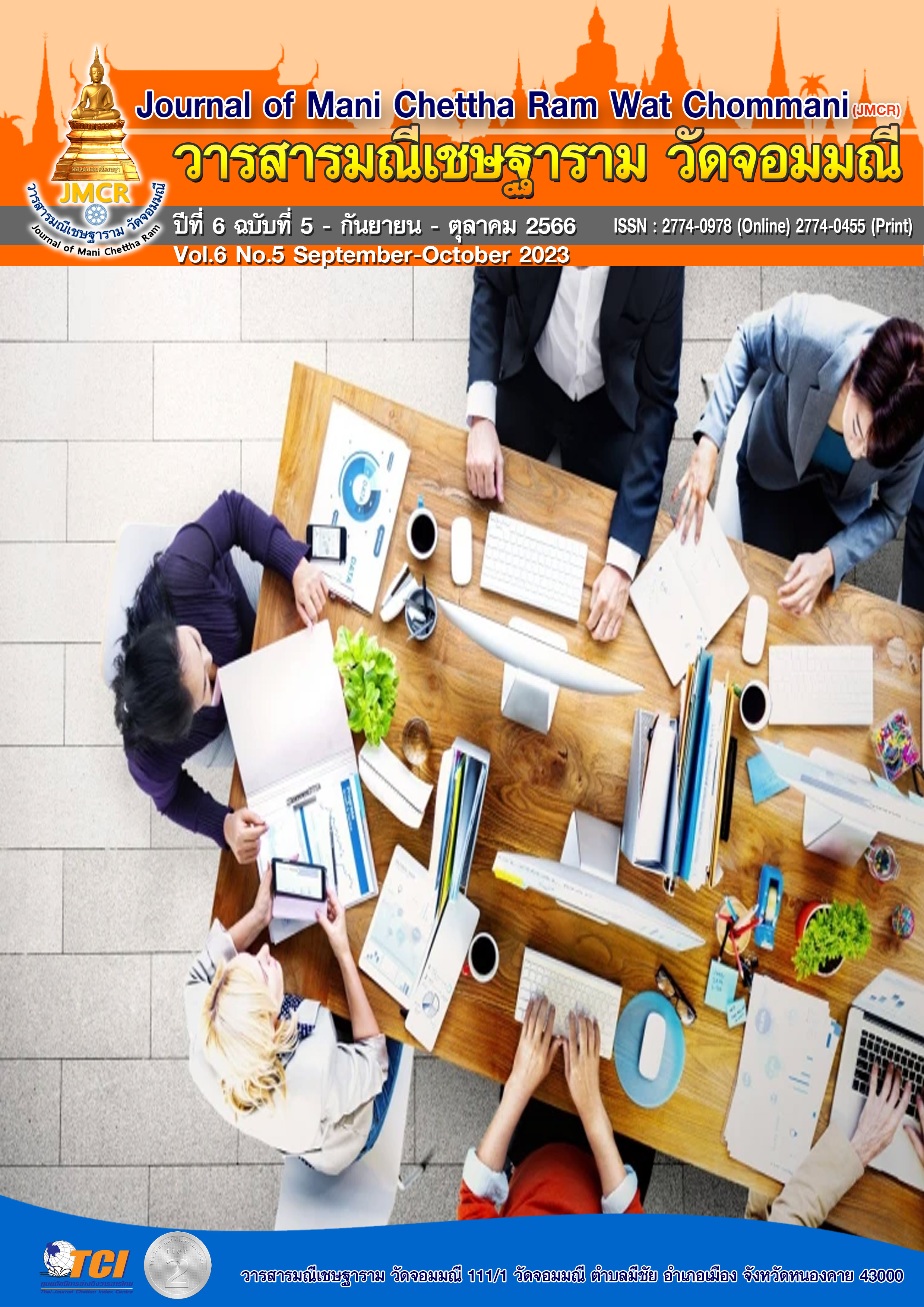PRIVATE EDUCATIONAL INSTITUTIONS IN THE DIGITAL AGE
Keywords:
Educational Institutions, Digital Age, Private SchoolsAbstract
This research paper discusses private educational institutions in the digital era. The author intends to depict private schools in the digital era as a changing educational administration. at the same time as technology management for private schools In the midst of unstoppable change, there is also oversight, monitoring, and encouragement of digital technology use in accordance with regulations and goals that encompass the purpose of private schools. Acceptance of technology, innovation, and change. having access to technology through digital educational institutions Private School Administration and Digital Technology The writers of the scholarly publications have synthesized educators' concepts, principles, theories, and academic works. Scholars view the significance. To use the results of the synthesis to improve the quality of teaching and learning in order to meet the demands of students in the digital era.
References
กระทรวงศึกษาธิการ. (2565). แนวทางการพัฒนาสถานศึกษาเอกชนในยุคดิจิทัล. กรุงเทพมหานคร: กระทรวงศึกษาธิการ.
ธิดา แซ่ชั้น และทัศนีย์ หมอสอน. (2559). การรู้ดิจิทัล: นิยามองค์ประกอบและสถานการณ์ในปัจจุบัน.วารสารสารสนเทศศาสตร์, 34(4),116-145.
วันเพ็ญ ผลิศร. (2561). ระบบคลาวด์เลิร์นนิงแบบอัจฉริยะเพื่อพัฒนาการรู้ดิจิทัล และทักษะ การเรียนรู้แบบร่วมมือกัน. ใน วิทยานิพนธ์ปริญญาดุษฎีบัณฑิต. มหาวิทยาลัยเทคโนโลยีพระจอมเกล้าพระนครเหนือ.
สิริวัจนา แก้วผนึก. (2560). รูปแบบการพัฒนามรดกดิจิทัลด้วยกระบวนการเล่าเรื่องดิจิทัลแบบสืบสอบอย่างมีวิจารณญาณ บนเว็บ 3.0 เพื่อส่งเสริมการรู้ดิจิทัลของนิสิตนักศึกษาสารสนเทศศาสตร์ปริญญาบัณฑิต. ใน วิทยานิพนธ์ปริญญาดุษฎีบัณฑิต. จุฬาลงกรณ์ มหาวิทยาลัย.
สุกัญญา แช่มช้อย. (2561). การบริหารสถานศึกษาในยุคดิจิทัล. กรุงเทพมหานคร: สำนักพิมพ์แห่งจุฬาลงกรณ์มหาวิทยาลัย.
สุรศักดิ์ ปาเฮ. (2562). การศึกษาภควันตภาพเรียนได้ทุกหนทุกแห่งและทุกเวลา. แพร่: แพร่ไทยอุตสาหการพิมพ์.
เอกราช โฆษิตพิมานเวช. (2560). เทคโนโลยีสารสนเทศของโรงเรียนเอกชนในยุคไทยแลนด์ 4.0. สกลนคร: มหาวิทยาลัยราชภัฏสกลนคร.
American Library Association. (2013). The State of America’s Libraries. Retrieved from: http://www.ala.org/news/sites/ala.org.news/files/content/2013-State- of AmericasLibraries-Report.pdf
Bawden, D. (2008). Origins and concepts of digital literacy. In I. C. L. M. Knobel (Ed.),
Digital Literacies: Concepts, policies and practices. (pp. 17-32). New York: Peter Lang.
Digital Citizenship Institute. (2019). DQ Global Standards Report. Retrieved from: https://www.dqinstitute.org/wp-content/uploads/2019/03/ DQGlobalStandardsReport2019.pdf
Eshet, Y. (2012). Digital Literacy: A New Terminology Framework and Its Application to the Design of Meaningful technology-Based Learning Environments. Retrieved from: http://files.eric.ed.gov/fulltext/ED477005.pdf.
Gilster, P. (1997). Digital Literacy. New York: Wiley.
Hague, C., & Payton, S. (2010). Digital Literacy Professional Development Resource. Retrieved from: https://www.nfer.ac.uk/publications/FUTL07/FUTL07.pdf.
Hobbs, R. (2011). Digital and Media Literacy Connecting Culture and Classroom.
Thousand Oaks, CA: Sage.
Hoechsmann, M., & DeWaard, H. (2015). Mapping Digital Literacy Policy and Practice in the Canadian Education Landscape. Retrieved from: http://mediasmarts.ca/sites/mediasmarts/files/publicationreport/full/mapping- digital-literacy.pdf.
Jun, F., & Pow, J. (2011). Fostering Digital Literacy through Web-Based Collaborative Inquiry Learning--A Case Study. Journal of Information technology Education, 10.
Martin, A., &Grudziecki, J. (2006). DigEuLit: Concepts and Tools for Digital Literacy Development. ITALICS: Innovations In Teaching & Learning In Information & Computer Sciences, 5(4), 246-264.
Newman, T. (2008). A review of digital literacy in 3 – 16 year olds: evidence, developmental models, and recommendations. London: UK: Timmus.
Obrien, D., & Scharber, C. (2008). Digital literacies go to school: Potholes and possibilities. Journal of Adolescent & Adult Literacy, 52(1), 66-68.
Poore, M. (2013). Using Social Media in the Classroom: A Best Practice Guide. Los Angeles: Sag.
Steele, B. (2009). Digital literacy project teaches students the rules of the online academic world. Retrieved from: http://www.news.cornell.edu/stories/2009/12/project-teaches-rules-online-academic-world
Summey, D. C. (2013). Developing Digital Literacy: A Framework for Professional Learning. London: Sage.
Tom Goodwin. (2018). Digital Darwinism: Survival of the fittest in the age of business disruption. London: kogan page limited.




